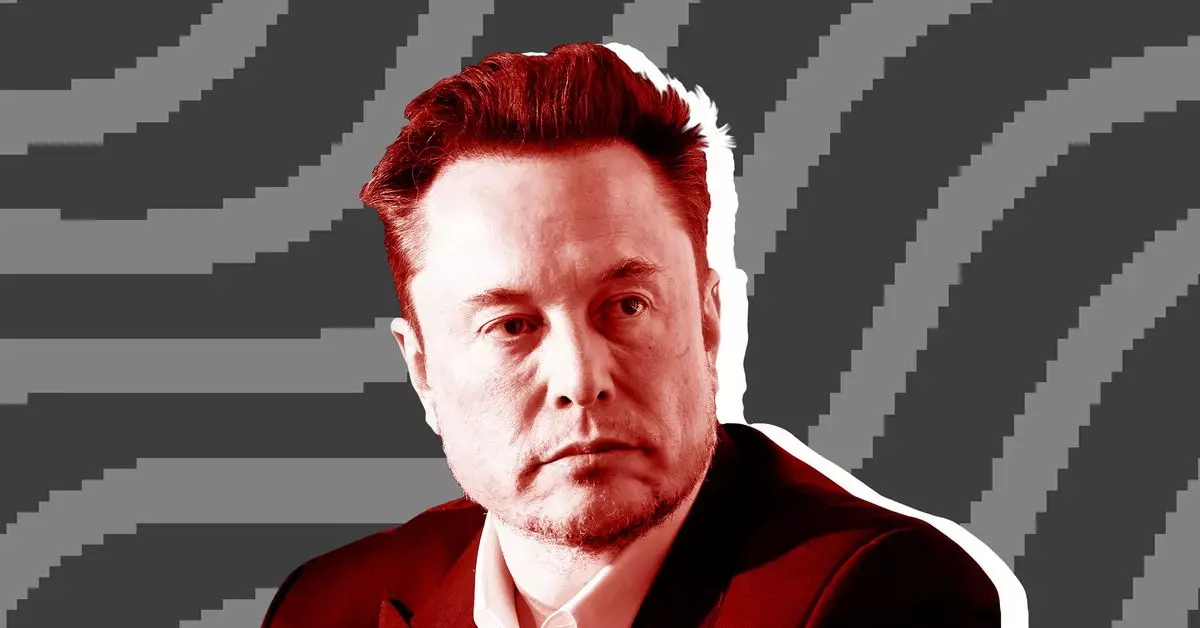In a shocking move that encapsulates the unpredictable nature of American politics, President-elect Donald Trump has made headlines by appointing tech titan Elon Musk and entrepreneurial politician Vivek Ramaswamy to spearhead a new initiative aimed at overhauling federal bureaucracy. Dubbed the Department of Government Efficiency, or DOGE, this entity is being framed as a revolutionary step towards a leaner, more accountable government. As we analyze the implications of this unusual pairing, the question arises: can government efficiency truly be achieved through unconventional means?
The primary mission of DOGE, as outlined in Trump’s announcement, centers around dismantling bureaucratic obstacles, slashing regulations deemed excessive, and cutting what are perceived as wasteful government expenditures. The ambitious timeline set for Musk and Ramaswamy, with a goal to wrap up their findings by July 4, 2026, is meant to coincide with the 250th anniversary of the Declaration of Independence, potentially framing their efforts as an act of patriotic renewal. However, the feasibility of their mission raises eyebrows, especially given the daunting scale of the federal budget, which tallies to approximately $6.5 trillion annually.
Musk, known for his ambitious ventures in technology and space exploration, hinted at the possibility of cutting $2 trillion from the budget. Critics, including experts from The Washington Post, have labeled this goal as “virtually impossible.” Furthermore, any substantial cuts that would result in significant savings would likely require painful sacrifices in crucial areas like the defense budget and social programs. It remains uncertain whether Musk and Ramaswamy are fully prepared to address the inevitable backlash that would arise from such sweeping reforms.
The Role of the Private Sector
One of the most pressing questions is how Musk and Ramaswamy plan to operate “outside of Government.” This notion suggests a reliance on private-sector principles to address systemic inefficiencies in federal operations. The concept of applying entrepreneurial tactics to government administration could indeed offer refreshing insights. However, transforming a bureaucracy as massive and entrenched as the U.S. government through privatized methods could prove fraught with challenges.
The announcement emphasizes collaboration between DOGE, the White House, and the Office of Management and Budget. This cooperative framework could facilitate pitches for innovative solutions, yet one must ponder whether traditional bureaucratic structures can harmoniously integrate with unconventional, agency-free methodologies. The skepticism surrounding this integration may significantly influence the success of DOGE’s destiny.
Another factor to consider is the cultural implications of this initiative. The appointments of Musk and Ramaswamy have prompted a wave of enthusiasm among supporters of the Republican Party, especially in light of Musk’s past advocacy for Trump’s campaigns. The endorsement of DOGE by prominent figures might incite a more significant push for political reform; however, such a vision can quickly become clouded if the public perceives it as a mere distraction from pressing social issues or economic challenges.
The effectiveness of DOGE’s proposals will ultimately hinge on public perceptions and acceptance. If the appointed leaders fail to communicate the benefits of their mission clearly or overlook the nuanced needs of citizens, their efforts could lead to disillusionment rather than revolutionary outcomes. The drastic austerity measures envisioned by Musk may not resonate with everyday Americans, particularly those heavily reliant on governmental support.
The establishment of the Department of Government Efficiency represents a radical approach to reshaping federal bureaucracy, driven by two of the most enigmatic figures in contemporary American culture. While the promise of a more efficient government is undeniably appealing, the actualization of this vision is fraught with challenges. To genuinely transform the government into a responsive and responsible entity, DOGE will need to navigate the labyrinth of political, social, and economic hurdles, all while earning the trust of the American public.
Only time will tell if this audacious initiative paves the way for transformational change or simply becomes another chapter in the saga of political upheaval that defines modern governance. As we approach July 4, 2026, vigilance and engagement will be necessary to hold this ambitious endeavor accountable.

